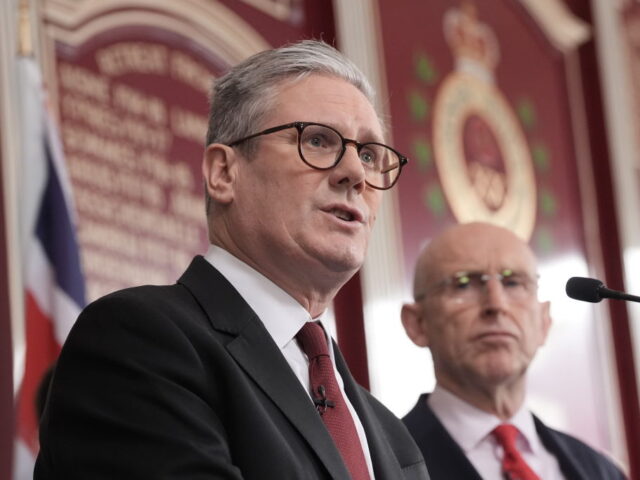Defence and security is a major election issue in the UK for the first time in decades, with vote frontrunner committing to Britain’s independent nuclear deterrent.
Sir Keir Starmer, polled to be the likely next Prime Minister of the United Kingdom this summer with the nation’s July general election, has joined a growing chorus of voices in Western nations saying the post-Cold War era is now over. Speaking while flanked by military veterans, the left-wing Labour leader enunciated his position that the world is becoming less safe while criticising the incumbent Conservative Party government for having run the military down to historic lows.
In recent memory the UK Labour Party has been led by a hard-left faction under Jeremy Corbyn which was passionately against mainstays of British defence including the nuclear deterrent, and much of the language in Starmer’s announcements on defence were expressed in the language of him leading a “changed” Labour party. Despite the sometimes staunch rhetoric on the importance of the military and nuclear weapons, the left-wing leader had no substantial replies when challenged on strongly anti-nuclear deterrent politicians holding top positions within his party, though.
Starmer said: “sadly, the world we live in today is perhaps more dangerous and volatile than at any time since [the Second World War]”, and for him the Russian invasion of Ukraine means “the post-war era is over, and a new age of insecurity has begun”.
In striking language for the leader of a party that would more instinctively campaign on issues like social packages and healthcare reform, Starmer told the audience that: “National security is the most important issue of our times” and “after 14 years of the Tories, we are less safe and less secure… we have the smallest army since the time of Napoleon, at a time when other countries are firmly on a war footing”.
He would not hesitate to use nuclear weapons to defend the United Kingdom, Starmer said, and committed himself to their renewal as the life-cycle of the present generation of nuclear attack submarines come to an end. Further, Starmer said he stood behind “a pledge of unwavering British support in the face of Russian tyranny” to Ukraine and President Zelensky.
Starmer’s comments are only the latest from European leaders noting the end of the post-Cold War era and the dawning of a new, more dangerous era in European security, with many concerned about Russia’s invasion of Ukraine spilling over into the European Union. Britain’s present Prime Minister — who is being challenged by Starmer in this present election — said many of the same things just last month when he launched the campaign.
He said then: “The dangers that threaten our country are real, and are increasing in number” and that Britain faces “one of the most dangerous periods we have ever known…the most dangerous time since the Cold War”.
These notions have been percolating into the political arena from military thinkers for months, and particularly since the 2023 Ukraine Spring counteroffensive with Western weapons and training failed to substantially move the needle on the conflict. Poland, which perhaps feels more threatened than any other European Union or NATO member state by Russian aggression warned last winter that war is coming to Europe, and sooner than most suppose.
They said: “To avoid war with Russia, countries on [NATO’s] eastern flank should adopt a 3-year time horizon to prepare for confrontation”.

COMMENTS
Please let us know if you're having issues with commenting.